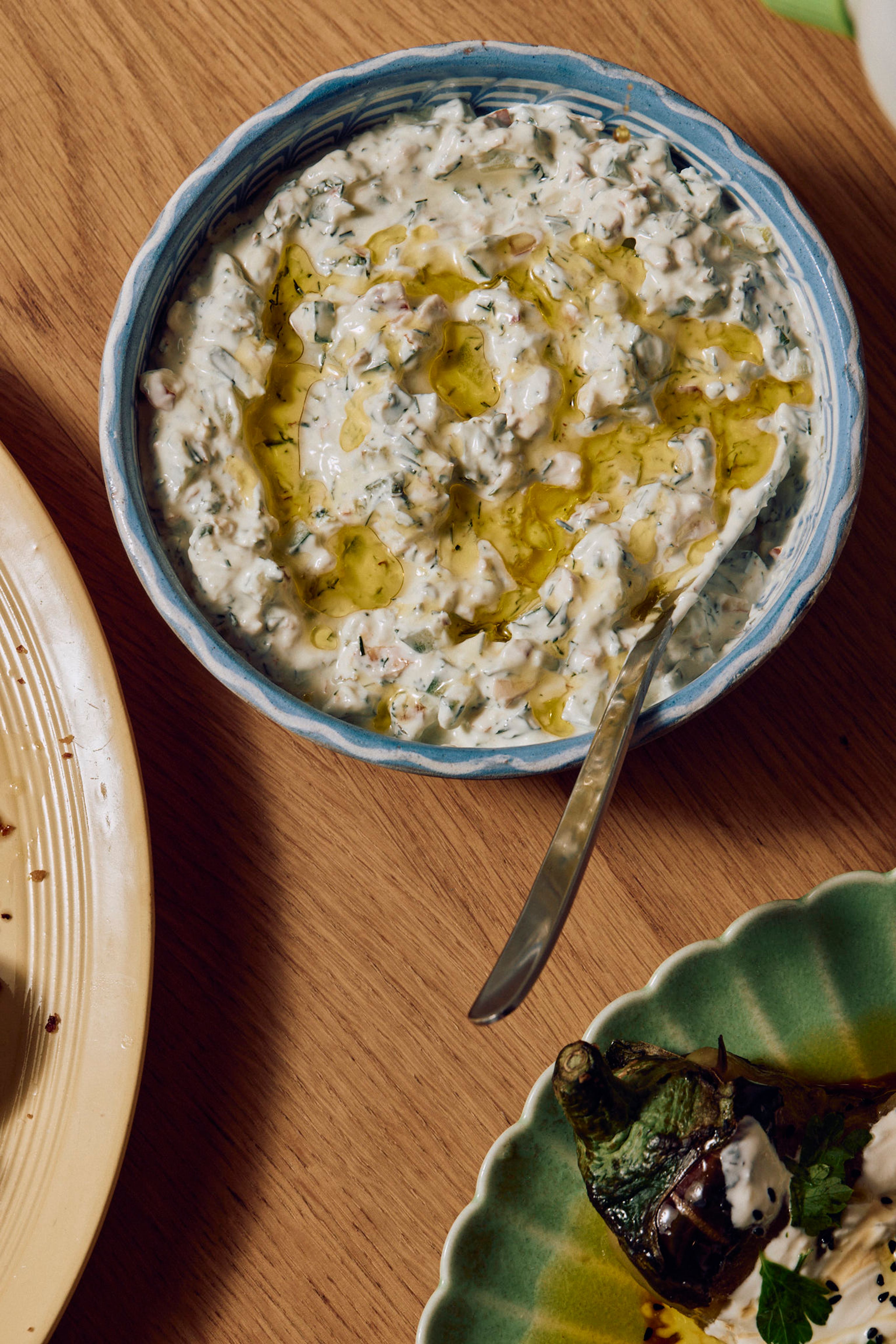Why is the Mediterranean Diet so Healthy?

Once again we got in touch with Olivia Swan, Accredited Practising Dietitian, to get the low-down on the buzz-iest (and healthiest) diet that everyone raves about. Most people have heard that the Mediterranean diet is good for you, but what exactly makes it so healthy? Let’s break it down and see how you can start adding more Mediterranean foods to your diet today!
What is the Mediterranean Diet?
The Mediterranean diet is based on the traditional foods and eating habits of countries like Italy, Greece, and Spain. Research shows that people in these regions tend to have lower rates of chronic diseases, thanks to their diet. The Mediterranean diet is mostly plant-based, with moderate amounts of lean proteins (like fish, chicken, and legumes) and plenty of nuts, seeds, and olive oil. Olive oil, a key part of this diet, is packed with healthy fats, vitamin E, and beta-carotene.
In simple terms, the Mediterranean diet is all about eating whole foods, getting lots of dietary fiber, and enjoying healthy fats, especially from extra virgin olive oil.
What Foods Does It Include?
- Fruits and Vegetables
- Extra Virgin Olive Oil (Oh, hi Goldi!)
- Whole Grain Breads and Cereals
- Legumes (like chickpeas, lentils, and beans), Nuts, and Seeds
- Fish and Seafood
- Eggs
- Cheese, Yoghurt, and Milk
- Chicken or Turkey
- Red Wine (1-2 glasses with meals if you drink, no more than 10 per week)
- Red Meat (eat less often)
- Sweets or Savoury Snacks (eat less often)
What Foods Aren’t Allowed?
The great thing about the Mediterranean diet is that it doesn’t ban any foods! Unlike fad diets that tell you what you can’t eat or when you should avoid food, the Mediterranean diet is about balance. It doesn’t label any foods as “bad” or “off-limits,” which helps create a healthier relationship with what you eat.
When we label foods as “good” or “bad,” it can lead to feelings of guilt, which often triggers a cycle of restricting and overeating. This pattern isn’t healthy or sustainable. Instead, the Mediterranean diet categorises foods into “daily,” “weekly,” or “sometimes” options, making it easier to stick to and enjoy in the long term.
What Are the Health Benefits of the Mediterranean Diet?
- Cardiovascular Health: Replacing foods high in saturated fat (like butter) with unsaturated fats (like olive oil) can lower LDL cholesterol, the kind that clogs arteries and increases heart disease risk. The Mediterranean diet has been shown to reduce cholesterol levels and lower the risk of heart disease and stroke.
- Blood Sugar Control: The diet includes plenty of legumes, which have been shown to help regulate blood sugar. Eating more fiber-rich foods like whole grains, fruits, and vegetables can also help stabilise blood sugar levels after meals.
- Mental Health: There’s growing evidence that a healthy gut microbiome, which thrives on high-fiber foods like those in the Mediterranean diet, can positively impact mental health. Studies have shown that following this diet can reduce symptoms of depression and improve overall mental well-being.
- Sleep Quality: Some studies have found a link between the Mediterranean diet and better sleep. For example, research in Italy showed that people who followed the Mediterranean diet reported higher sleep quality.
How Does It Compare to the Australian Dietary Guidelines?
- Meat and Alternatives: The Mediterranean diet recommends less red meat, with a weekly limit of 80-100g, compared to 450g in the Australian guidelines. The focus is more on chicken, fish, legumes, and eggs.
- Dairy: Both the Mediterranean diet and Australian guidelines suggest about 2 serves of dairy daily from sources like cheese, yogurt, and milk.
- Fruit: The Mediterranean diet includes a bit more fruit—2-3 serves daily compared to 2 serves in the Australian guidelines.
- Vegetables: Both diets recommend 5 serves of vegetables daily, but the Mediterranean diet emphasizes leafy greens and tomatoes every day.
- Grains: Both diets encourage 4-6 servings of high-fiber grains daily, like whole grain bread and oats.
What Else is Important?
The Mediterranean diet isn’t just about what you eat; it’s also about how you eat. Meals are often enjoyed with family and friends, focusing on flavor, enjoyment, and good company. This way of eating can help with picky eating, as everyone gets to choose what they like from shared dishes. It also encourages listening to your body’s hunger cues rather than just finishing what’s on your plate.
The Mediterranean diet also values traditional, local, and eco-friendly foods, along with physical activity and rest. It’s about living a balanced, happy life, and enjoying food with festivity and cheer!
How Can I Incorporate the Mediterranean Diet into My Day?
Meal Ideas:
- Breakfast: Rolled oats with blueberries and almonds, poached eggs with grilled tomato on multigrain toast, or try Ricotta and Fig Toast
- Lunch: Tuna salad with spinach and cucumber, or a Chicken, Avocado, and Salad wrap.
- Dinner: Basil Pesto Pasta
- Snacks: Veggie sticks with cottage cheese, or Herby Popcorn here (https://fb.watch/etYmQqQskE/).
Pulling It All Together
- Use olive oil as your main source of fat.
- Include plenty of fruits and vegetables.
- Serve whole grains at each meal.
- Include dairy or calcium-rich alternatives daily.
- Limit red meat.
- Eat locally and seasonally.
- Be active every day.
- Enjoy your food!












